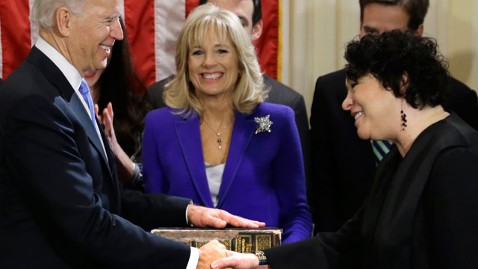Notre Dame star linebacker Manti Te'o told ESPN that he "never, not ever" was involved in creating the hoax that had him touting what turned out to be a fictional girlfriend, "Lennay Kekua."
"When they hear the facts, they'll know," Te'o told ESPN's Jeremy Schaap in his first interview since the story broke. "They'll know that there is no way that I could be a part of this."
"I wasn't faking it," he said during a 2 1/2-hour interview, according to ESPN.com.
Te'o said he only learned for sure this week that he had been duped. On Wednesday, he received a Twitter message, allegedly from a man named Ronaiah Tuiasosopo, apologizing for the hoax, Te'o told Schaap.
The sports website Deadspin, which first revealed the hoax this week, has reported that Tuiasosopo, a 22-year-old of Samoan descent who lives in Antelope Valley, Calif., asked a woman he knew for her photo and that photo became the face of Kekua's Twitter account.
Te'o told Schaap that Tuiasosopo was represented to him as Kekua's cousin.
"I hope he learns," Te'o said of Tuiasosopo, according to coverage of the interview on ESPN.com. "I hope he understands what he's done. I don't wish an ill thing to somebody. I just hope he learns. I think embarrassment is big enough."
Click Here for a Who's Who in the Manti Te'o Case
AP Photo/ESPN Images, Ryan Jones
Manti Te'o Hoax: Was He Duped or Did He Know? Watch Video
Manti Te'o Hoax: Notre Dame Star Allegedly Scammed Watch Video
Tale of Notre Dame Football Star's Girlfriend and Her Death an Alleged Hoax Watch Video
Te'o admitted to a few mistakes in his own conduct, including telling his father he met Kekua in Hawaii even though his attempt to meet her actually failed. Later retellings of that tale led to inconsistencies in media reports, Te'o said, adding that he never actually met Kekua in person.
Te'o added that he feared people would think it was crazy for him to be involved with someone that he never met, so, "I kind of tailored my stories to have people think that, yeah, he met her before she passed away."
The relationship got started on Facebook during his freshman year, Te'o said.
"My relationship with Lennay wasn't a four-year relationship," Te'o said, according to ESPN.com. "There were blocks and times and periods in which we would talk and then it would end."
He showed Schaap Facebook correspondence indicating that other people knew of Kekua -- though Te'o now believes they, too, were tricked.
The relationship became more intense, Te'o said, after he received a call that Kekua was in a coma following a car accident involving a drunk driver on April 28.
Soon, Te'o and Kekua became inseparable over the phone, he said, continuing their phone conversations through her recovery from the accident, and then during her alleged battle against leukemia.
Even so, Te'o never tried to visit Kekua at her hospital in California.
"It never really crossed my mind," he said, according to ESPN.com. "I don't know. I was in school."
But the communication between the two was intense. They even had ritual where they discussed scripture every day, Te'o said. His parents also participated via text message, and Te'o showed Schaap some of the texts.
On Sept. 12, a phone caller claiming to be Kekua's relative told Te'o that Kekua had died of leukemia, Te'o said. However, on Dec. 6, Te'o said he got a call allegedly from Kekua saying she was alive. He said he was utterly confused and did not know what to believe.
ESPN's 2 1/2-hour interview was conducted in Bradenton, Fla., with Te'o's lawyer present but without video cameras. Schaap said Te'o was composed, comfortable and in command, and that he said he didn't want to go on camera to keep the setting intimate and avoid a big production.
According to ABC News interviews and published reports, Te'o received phone calls, text messages and letters before every football game from his "girlfriend." He was in contact with her family, including a twin brother, a second brother, sister and parents. He called often to check in with them, just as he did with his own family. And "Kekua" kept in contact with Te'o's friends and family, and teammates spoke to her on the phone.












